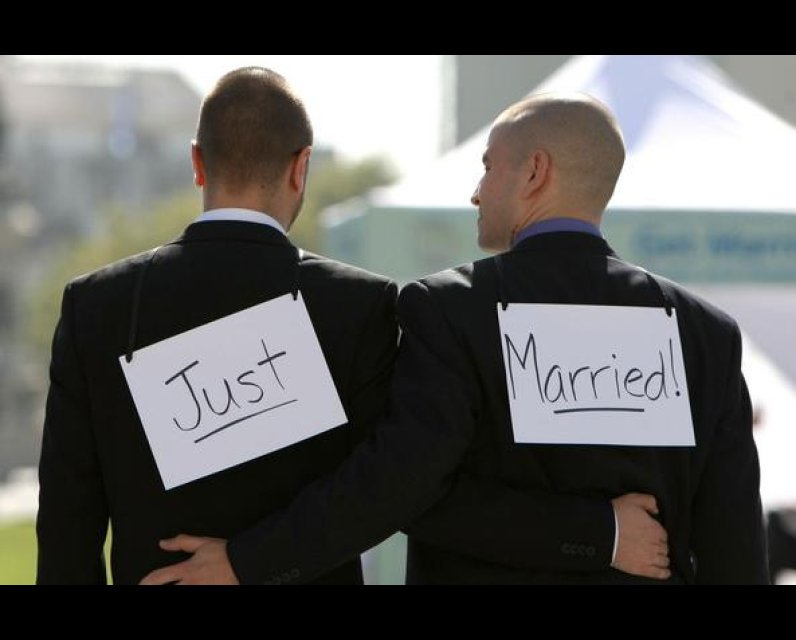Unpublished Opinions
A Fresh Approach to “Gay Marriage”

Appearing in the Washington Post for 08 April is a story on rejection by Pope Francis of “gay marriage” in the Roman Catholic Church: http://wapo.st/1YiwD8t
We have now had several years of stories and opinions on so-called “gay marriage”. I continue to be puzzled and troubled.
My basic problem is that there is not merely one issue here but at least three:
- whether the ritual of a given religion should sanctify a “marriage” between homosexuals;
- whether, from a taxation and benefits standpoint, a given government should treat two homosexuals living together in the same way as it treats a heterosexual couple living together;
- whether, in matters of civil law and public interactions generally, a homosexual couple should be treated in substantially the same way as a heterosexual couple.
There is also the related question of whether secular heterosexual couples should be treated in the same way as couples who have gone through a religious marriage ritual.
Further, the appropriation of “gay” by homosexuals has caused an abandonment of that previously useful adjective in everyday speech. We can no longer feel gay when Johnny comes marching home.
What has happened is that these words and these issues have become intermingled and confused, to the dismay and annoyance of many observers. In general, advanced democracies have preferred a separation of church and state, yet in many cases, with little or no analysis, the state has been willing to decide what “marriage” is.
Marriage existed long before states and governments became involved in defining what it is. Of course, marriage usually has had legal consequences, and has often had political consequences. In the days of absolute monarchies, the decision as to what princess would marry what prince was highly important, and generally, marriage decisions determined rights of inheritance. Inheritance governance has continued to be an important attribute of marriage.
But ultimately, inheritance is a legal matter, and laws can and do constrain ostensible rights granted by marriage. And in many cases, private parties by contract may legally limit or deflect the rights that would otherwise flow from marriage.
Similarly, governments can decide how to benefit or tax couples without reliance upon a decision whether or not in any sense they are “married”. In many if not all democracies, laws governing benefits and taxation may take into account whether couples are living together and acting together as a unified couple, without invoking the concept of marriage.
What we seem to be left with is a semantic quibble. The homosexual couple wants to be treated as equal to a married couple. So the homosexual couple wants to go through a ceremony that is called “marriage” and be treated thereafter as “married”.
We could select a different verb and noun, declare that the homosexual pair has been “coupled”, and that from a legal and status standpoint, a coupled homosexual pair is equal to a coupled heterosexual pair, leaving the question of “marriage” to religion. That would probably please the officiants and members of many religions, but would it satisfy homosexual couples?
“Government has no place in the bedrooms of the nation”. Extrapolate that principle to “Government has no place in deciding what constitutes marriage – that can be left to religion. Legal relationships in which governments may play a role may be suitably defined and expressed without invoking the concept of marriage”.
If governments were to take the lead expressed in the preceding paragraph, I submit that:
- much of the present controversy about “gay marriage” would diminish;
- much of the present confusion would be alleviated;
- the religious sanctification of marriage would be treated as purely religious, and would not encroach upon the legal rights and duties conferred by law;
- from a legal standpoint, homosexual couples would be treated as equal to heterosexual couples.
Government and the law do evolve. As a striking example, the Bastardy Act was replaced by the Illegitimate Children’s Act, which in turn was replaced by the Children of Unmarried Parents Act, which in turn was replaced by the Child Welfare Act. We now have need of a conceptual, analytical, and semantic evolution in our treatment of “gay marriage”.
The foregoing suggested resolution of at least part of the problem will not resolve differences of opinion within religions of the rights of homosexuals to form a married couple nor generally. Those issues will be left to each religion to resolve for itself. But from a civil standpoint, what the Pope or any other religious leader might have to say about “gay marriage” would not affect the legal rights of any homosexuals.
– Bob Barrigar



Comments
Be the first to comment